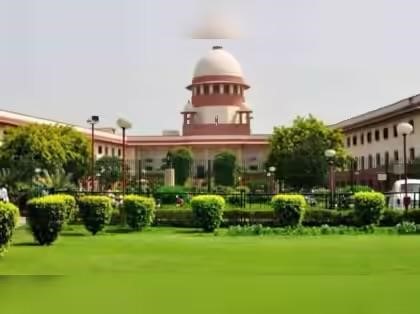In a significant decision that may reshape how property ownership is viewed in India, the Supreme Court has ruled that registration of land or property is not, by itself, conclusive proof of ownership. This landmark judgment clarifies that a registered sale deed does not automatically confer title, and property rights must be backed by legal ownership, possession, and valid title documents.
The Case Behind the Ruling
The verdict came during the hearing of a property dispute case, where one party relied solely on the registered sale deed as evidence of ownership. The opposing party contested the title, arguing that the registration alone did not reflect the actual ownership status due to prior claims and pending legal issues.
The court, after examining all evidence, ruled in favor of a more nuanced interpretation of ownership, stressing that:
“Registration of a sale deed is evidence of a transaction, but not conclusive proof of ownership. Title flows from rightful ownership, possession, and valid legal transfer, not merely from documentation.”
What the Ruling Means for Property Owners
This judgment could have widespread implications for buyers, sellers, real estate developers, and legal practitioners. It means that:
- Registration is a legal formality, but not the final word in ownership disputes.
- A buyer must ensure the seller has a clear and marketable title before purchasing property.
- Other documents — such as mutation records, tax receipts, possession certificates, utility bills, and court judgments — may also be needed to establish true ownership.
Key Points to Consider
- Registered Sale Deed ≠ Guaranteed Ownership
Registration simply records a transaction. It doesn’t override existing encumbrances, forged titles, or pending disputes. - Due Diligence is Critical
Buyers must conduct proper legal due diligence, including title search, encumbrance checks, and verification of possession and revenue records. - Possession and Enjoyment of Property Matter
Courts may give weight to long-standing possession and usage rights in cases of dispute, especially if accompanied by consistent tax payments and public records. - Encumbrance Certificate is Not Enough
Even an encumbrance certificate, which shows whether a property is mortgaged or has legal dues, doesn’t guarantee ownership.
Expert Opinions
Legal experts and property lawyers have welcomed the ruling, calling it a “wake-up call” for casual buyers and real estate investors who often treat registration as the end of the process.
“This verdict reinforces the need for comprehensive legal checks. Just because a property is registered doesn’t mean it’s clean. Buyers must go beyond paperwork,” said Advocate Renu Sharma, a Delhi-based property lawyer.
Real estate associations are also advising developers to be more transparent and cooperative in providing full documentation to potential buyers, including historical ownership records and litigation status.
Impact on Real Estate Industry
This ruling could increase demand for title insurance and legal audits, especially in high-value or disputed zones. It also emphasizes the importance of digitization of land records, a key objective under India’s Digital India Land Records Modernization Programme (DILRMP).
FAQs
Q1: Does a registered sale deed not make me the owner of the property?
A: A registered sale deed is strong evidence of transfer, but not conclusive proof of ownership. Ownership must be supported by a clean title, valid possession, and the absence of legal disputes.
Q2: What documents should I verify before buying property?
A: Along with the sale deed, check title deeds, mutation records, property tax receipts, possession certificates, past litigation, encumbrance certificates, and ensure the seller has undisputed ownership.
Conclusion
The Supreme Court’s ruling serves as a crucial reminder that property ownership in India is not defined by registration alone. True ownership requires a combination of legal title, lawful possession, and clean history. Buyers must exercise caution, seek legal advice, and demand complete transparency before investing in property.

















